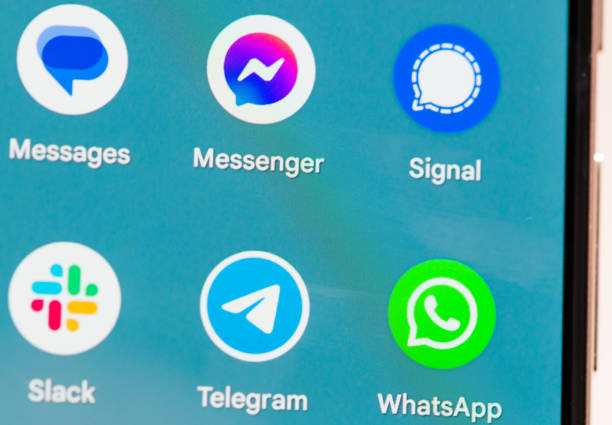Not all messengers protect your privacy the same way. Let’s compare.
Every day, millions of people worldwide send personal messages — photos, voice notes, documents, passwords, important links. Messaging apps have become an essential tool for communication, but are they all equally secure and trustworthy?
In the age of digital threats, it’s important to understand which messaging apps truly protect your data and which ones only create an illusion of security.
Let’s take a closer look at the three most popular apps — Signal, Telegram, and WhatsApp — to help you make an informed choice.
Get started
Signal — Maximum Privacy and Transparency.
Signal is widely regarded as the gold standard for security by cybersecurity experts.
- End-to-end encryption is enabled by default, so only you and the person you’re messaging can read the content. Even Signal’s servers cannot access your messages.
- The app is fully open-source, meaning anyone can inspect, verify, and confirm that there are no backdoors or vulnerabilities.
- Minimal metadata collection: Signal does not store information about who you talk to, when, or from what IP addresses.
- Signal is developed by a non-profit organization, meaning it has no incentive to collect data for advertising or monetization.
Telegram — Flexibility with Compromises.
Telegram offers a feature-rich experience but with significant caveats.
- Secret chats support end-to-end encryption but must be manually enabled and are not available for group chats.
- Regular chats are stored unencrypted on Telegram’s servers, meaning the company theoretically can access your messages.
- Telegram collects metadata, including contact lists, timestamps, and IP addresses, which can be used to analyze user behavior.
- Telegram’s code is partially open (for clients), but the server-side code and encryption protocols are closed, making independent security audits difficult.
WhatsApp — Convenience with Trade-Offs.
WhatsApp is one of the world’s most popular messaging apps, with over two billion users.
- WhatsApp uses end-to-end encryption by default, built on the Signal protocol, ensuring message content is protected during transmission.
- However, WhatsApp is owned by Meta (Facebook), which collects substantial metadata: who you talk to, when, how often, and your geolocation.
- Meta may use this data for targeted advertising and share it within its ecosystem of services.
- WhatsApp is closed-source, so independent auditors cannot fully verify its security.
What to Consider When Choosing a Messenger?
- Encryption level:
Is end-to-end encryption enabled by default? Or does it require manual activation? - Metadata policies:
What data about you is collected and stored? Can it be linked back to your identity? - Code openness:
Is the app’s code open for community review? This ensures no hidden backdoors. - Ownership and intent:
Companies monetizing your data through ads are less likely to protect your privacy fully. - Additional features:
Do you need large groups, channels, bots, or integrations? Is it worth compromising security for these?
Summary
Signal is the best choice for those who put privacy first.
Telegram offers flexibility and features but at the cost of some privacy compromises.
WhatsApp provides convenience but involves trusting Meta with your metadata.
Remember, true security isn’t just about encryption — it’s about who you trust with your data. Choose your messenger wisely!
